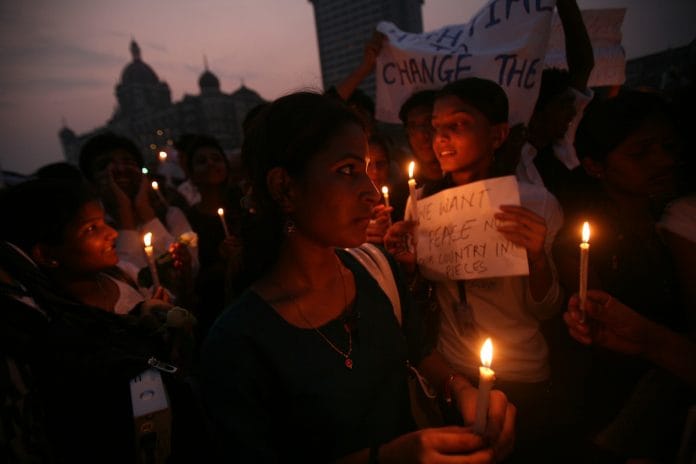Trial of Sayed Zabiuddin Ansari or Abu Jundal was stayed in April, pending an appeal by the Delhi Police against a lower court order.
Mumbai: On 21 June 2012, the Delhi Police’s Special Cell arrested Sayed Zabiuddin Ansari alias Abu Jundal, suspected to have coordinated the 26/11 terror strike in Mumbai that killed 166 people and injured over 400 others.
Six years later, as the country prepares to mark the tenth anniversary of the attacks, Ansari’s trial in the 26/11 Mumbai terror case is still stuck.
The Bombay High Court had stayed the trial in April this year, pending an appeal by the Delhi Police against a lower court order directing Ansari’s travel documents be shared with his lawyer.
“The High Court-mandated stay on the trial continues so we cannot proceed in the case. The Delhi Police’s appeal against giving the travel documents has also seen little progress,” said special public prosecutor Ujjwal Nikam.
“The case is likely to come up for hearing early next year and we hope to see some sort of progress,” he said.
Also read: Lesson from 26/11: Terror kills, not democracy
Tussle over travel documents
Ansari’s lawyer Abdul Wahab Khan had earlier this year made an application before a trial court seeking Ansari’s travel papers from Saudi Arabia to India and the airline’s passenger list.
The trial court in March directed that the travel documents be shared with Khan, following which the Delhi Police’s Special Cell approached the Bombay High Court urging it to set aside the trial court’s order, claiming privilege over the documents.
On 20 April, high court Justice Nitin Sambre stayed further trial in the 26/11 case against Ansari pending Delhi Police’s appeal.
“There has been no progress since then. The last hearing was about two months ago,” one of the lawyers assisting on Ansari’s case said.
“We at least got some interim relief when the court stayed the trial. It is difficult to say when the next hearing will be,” the lawyer added.
As of now, the case is listed for hearing on 14 February, 2019.
The prosecution claims Ansari allegedly coordinated the 26/11 attacks from a control room in Karachi and later moved to Saudi Arabia. The Delhi Police claims to have arrested Ansari from the Indira Gandhi International Airport based on a tip off and recovered a Pakistani passport and identity cards from him.
The defence says that the Saudi government deported Ansari who was accompanied by three police officers on his flight to Delhi.
According to the defence, the travel information and the list of passengers on the aircraft can raise questions over the prosecution’s theory about Ansari’s arrest and claims of a Pakistani passport.
Also read: Hotel Mumbai provides a raw & rare look behind 26/11 Mumbai terror attack
Life imprisonment
Ansari is currently lodged in Mumbai’s Arthur Road jail serving life imprisonment in the 2006 Aurangabad arms haul case, which first brought him on the Maharashtra Anti Terrorism Squad’s (ATS) radar.
A MCOCA court convicted Ansari in the case in 2016. Ansari is said to have been among 22 accused who procured a huge cache of explosives, including RDX, AK-47 rifles and several rounds of ammunition to allegedly target political leaders accused for the 2002 Gujarat riots.
The ATS foiled the plan based on a tip-off and arrested three suspects, but lost Ansari. He allegedly fled to Bangladesh and later to Pakistan.
Ansari was born in Maharashtra’s Beed district.
Several witnesses have identified the voice in conversations intercepted by the police that allegedly took place between the armed terrorists in Mumbai and their handlers at the time of the attacks as Ansari’s.
According to police sources, Ajmal Kasab, the Pakistani convict in the 26/11 attacks, too had identified Ansari when they were brought face-to-face at the Arthur Road jail in 2012.






